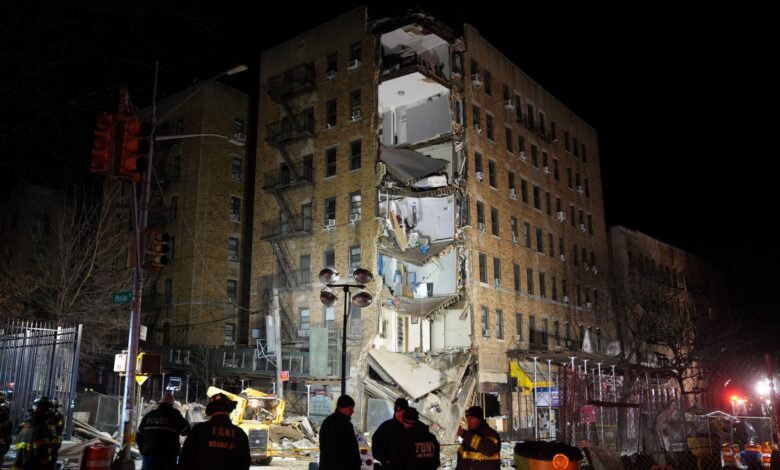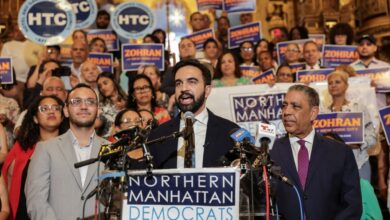Bronx building collapse is a warning of disasters likely to get ever more common

We’ll see more incidents like Monday’s partial collapse of a 47-unit Bronx building as progressives make it impossible for building owners to make ends meet.
It’s everyone’s good fortune that no lives were lost: In August, the partial collapse of the century-old Manhattan parking garage left one dead and five others injured.
Another recent warning: the discovery of a gaping hole and falling concrete in another aged structure above an Amtrak tunnel, shutting down service to Albany.
New York City has lots of deteriorating buildings — and the left’s war on landlords prompts even more deferred maintenance.
The collapsed Bronx building’s owner has been hit with more than 100 housing code violations in recent years; city records show at least three tenant heating complaints in the last month.
COVID halted scheduled repairs in 2021, but the owner recently filed plans to bring the crumbling façade up to code.
The pandemic halted construction and repair projects all across the Big Apple, and to further compound problems for landlords, many tenants stopped paying rent.
The nearly century-old building at 1915 Billingsley Terrace had issues — but the violations don’t provide a complete picture of the property’s financial health, nor does the fact that the landlord has been on the Public Advocate’s “Worst Landlord List.”
The reflex assumption is that city rental properties would all do well if it not for “greedy landlords,” yet onerous rent regulations and misguided tenant protections can leave upstanding landlords unable to afford proper maintenance — and increase the odds that the only buyers for those buildings will be those willing to cut corners.
Thanks to the rent laws, older units occupied the longest, which most need renovation, have the lowest rents. But a 2019 “pro-tenant” law sharply limits landlords’ ability to hike rents to cover the costs of renovation, simply to bring units up to code.
Tens of thousands of apartments across the city now sit unrenovated and empty as a result.
The same dynamic applies to overall building maintenance.
The state also limits rent hikes to recoup capital improvement costs. But if your rent rolls don’t show enough profit, you can’t get a loan to finance the work.
The result: a slower-motion version of the decay that has the New York City Housing Authority staring at at a $78 billion bill to bring all its housing stock into a state of proper repair.
Progressives won’t face the facts even as their policies deepen the city’s shortage of affordable units, and even of barely-affordable ones.
Maybe they’ll see the light when building collapses start becoming a monthly disaster.




